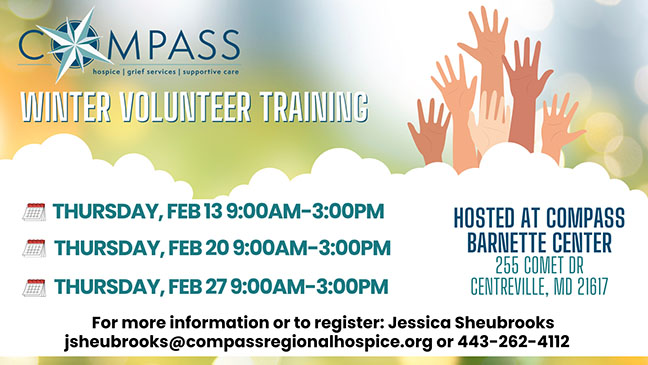Over 2,250 people participated in For All Seasons’ fourth annual Frosty’s Holiday Village event on Friday, December 6 at Anchor Church in Easton, MD. Participants represented all ages and ethnicities.
Participants strolled through the free event while enjoying free activities, including professional photos with Frosty and friends, holiday crafts, Cascading Carlos the Juggler, complimentary cocoa, cider, and winter treats, and a continuous showing of “Frosty’s Winter Wonderland” on the big screen. This year, the event added 20 new inflatables and a second movie.
“We can’t thank our sponsors enough for supporting this event and allowing us to make it free for participants again. The event has become a holiday tradition for many. We recognize that this time of year can be difficult for many. We hope this event helped people find joy and reconnect with each other as we gathered as a community. It’s a great event for all generations – grandparents often bring their grandchildren to see Frosty,” commented Lauren Weber, For All Seasons’ VP of Strategy and Development.
Presenting sponsors included the St. John Foundation and Willow Construction. Additional Sponsors included the Jacob Sloan Foundation, TriGas & Oil/PepUp, Anchor Church, Mid South Audio, Parker Counts, Beverley Martin, Hearthstone Health + Fitness, the Tidewater Inn, Dwelling & Design, Carl Pergler and Mary Lou Butler, Avon-Dixon Insurance Agency, Ewing, Dietz, Fountain & Kaludis, P.A., Christ Church, St. Peter’s Parish, The Julianne Rosela Foundation, Easton Dermatology, Construction Services & Supply Inc., the Seip Family Foundation, Creative Training Solutions (Stacia Skinner), The Country School, Talbot County Health Department, Chesapeake Building Components, Didier and Sherry Smith, Chesapeake College Foundation, Giovanni Wynn (The Wynn Family), La De Da! (Diane Flagler), Sharon Pepukayi, Linda and Dyke Booze, Talbot Hospice, Kelly Griffith (The Griffith Family), Risk Placement Services, Nicole and Bryan Schwenker, Aging at Home (Amy Keller), Half Full, Len and Ann Wolf, Shay Lewis-Sisco, Grauls Markets, Lee and Monica Meyers, Matt Meyers and Kelsey Trumbull-Meyers, Mia and Bill Cranford, and Kevertin Pet Resort.
For All Seasons provides the highest quality mental health and victim services to children, adults, and families across the Mid-Shore and throughout the state of Maryland. Services are offered in both English and Spanish and include therapy, psychiatry, victim advocacy, 24-hour crisis hotlines, outreach, and community education. For information about For All Seasons walk-in hours, contact For All Seasons at 410-822-1018 or visit ForAllSeasonsInc.org.




